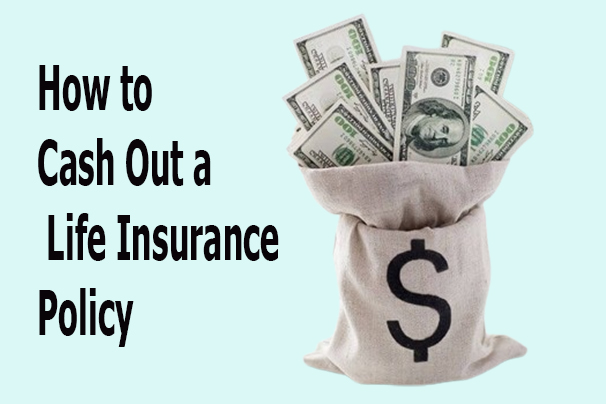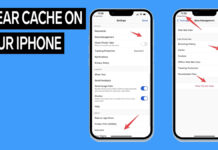How to Cash Out a Life Insurance Policy – In recent times, life insurance has become very important to Americans. With this policy, you can provide financial help for the loved ones you leave behind when you pass away. The best part of purchasing this policy is that it offers a financial safety net for people who depend on you.
However, do you know that life insurance can also provide cash for you while you are alive? Yes, it can. But this can only be possible if you have cash-value life insurance. This is one of the advantages of a permanent policy. And one of the reasons is that it is more expensive than a term life insurance policy, aside from lasting your whole life.

Although using your life insurance to meet your financial needs can compromise your family’s financial future or long-term goals, it could be a good source of needed income. You can easily cash out your life insurance policy in various ways. In this article, you will learn how to go through each option easily.
Can I Cash out a Life Insurance Policy?
Yes, you can do that. With your cash-value life insurance policy, such as universal life or whole life insurance, you can make use of the cash value. One of the best ways to do that is to surrender or cash out the policy. If your option is to cash out the policy, you will get the cash value minus the surrender fees. Keep in mind that surrendering the policy means ending it. If you don’t want to cancel your policy entirely, you can take out a loan or withdraw from your cash value.
How do I cash out a Life Insurance Policy?
If you wish to cash out your policy by stopping all the premium payments and removing the cash value, you can just surrender the policy. But before cashing out, it is advisable that you consider your financial plan. And if you have enough to leave for your loved ones when you pass away, Below are some of the easiest ways to access all or some of the cash in your permanent life policy:
Make a withdrawal
Because you own the policy, you can choose to withdraw it whenever you want. All you need to do is contact your insurer and let them know how much you wish to withdraw. Once you do that, they will deposit the cash into your bank account or wire it to you. Just so you know, withdrawals are taken from your basis (this is the money you have paid into cash value via premiums).
The money is tax-free because it is referred to as a return of your basis. For instance, if you have about $50,000 in cash value and $20,000 of it is your basis, you can withdraw $20,000 tax-free. However, if you tap the earning portions, you will have to pay for taxes on the gains at your normal income tax rate. Keep in mind that withdrawing cash for your policy will also reduce the death benefit your beneficiaries are supposed to get when you pass away.
Loan
Most cash value policies allow policyholders to borrow money from the insurance company using their cash accumulation account as collateral. Depending on the terms of the policy, the loan may be subjected to interest at variable or fixed rates. However, you are not required to qualify for this loan financially. The money you can borrow is based on the contract terms and the value of your policy’s cash accumulation account. Generally, less value will be available throughout the policy’s early years.
The good part is that the money borrowed for non-MEC policies is tax-free. Also, you don’t need to make payments on the loan, even though the outstanding loan is actually accruing interest. You can pay off the loan when you want or leave it to be settled when the policy ends. The drawback is that the loan balances reduce your policy death benefit. This means your loved ones may get less than you intended.
Also, a loan that is not paid back and that is accruing interest reduces your cash value; it can cause your policy to lapse. If insufficient premiums are paid to maintain your death benefit, If the loan is still outstanding when you later surrender the policy or when it lapses, the amounts borrowed become taxable. To the extent that the cash value exceeds the basis of your contract. Policy loans from a policy that is referred to as MEC are treated as distributions. This means the loan amount up to your policy earnings could be subject to the early withdrawal penalty and be taxable.
Surrendering your policy
You can surrender the policy to get all the cash value minus the surrender charge. However, you may have to pay taxes on gains earned on the cash value portion of the insurance. Also, you will have to give up the coverage because surrendering means you are terminating the policy.
For instance, you can reduce the policy’s face value to reduce your premium. Or make use of your cash value to transform the policy to paid-up status to keep a good amount of coverage. Also, you can tap the cash value to pay your premiums temporarily if you are going through hard times. If you are doing this, we advise you to be cautious not to use so much cash value that your policy ends.
Sell Policy for Cash or Life Settlement
You can get enough by selling your policy to another person through a life settlement. The third party will pay you a good amount that is less than your policy death benefit but more than the cash value. The buyer will now have to pay the policy premiums. When you pass away, the investor will then collect the death benefit. You can consider a life settlement if you urgently need financial help, which is more than the need for life insurance.
Also, you have to be 65 and older or have a leave of absence for health impairments to qualify for the life settlements. You can be younger than 65 to sell the policy, but you must be very sick. Work with a good life settlement company and get offers from multiple companies. Keep in mind that there are fees associated with life settlements. And you will have to pay income tax once you sell the policy.
When can I Cash out my Life Insurance?
Although it is not always a good option to cash out your policy, We recommend that you wait at least for about 10 to 15 years for the cash value to grow before cashing out. Consider talking to your retirement specialist or insurance agent before cashing out the policy.
Is cashing out my Life Insurance policy a good option?
We can’t necessarily call it a good option. But if you find yourself in a situation that is more than having an insurance policy, you can go for this option. However, ensure that you read your policy contract, probably to know how it works. And find out about the charges you will need to pay. Meet with your insurance company or agent for more information.
If you don’t want to cash out your life insurance policy, there are other better ways you can go. This includes taking out a home equity loan, a personal loan, and considering a credit card with a 0% introductory rate. And check into borrowing money from your retirement account.



